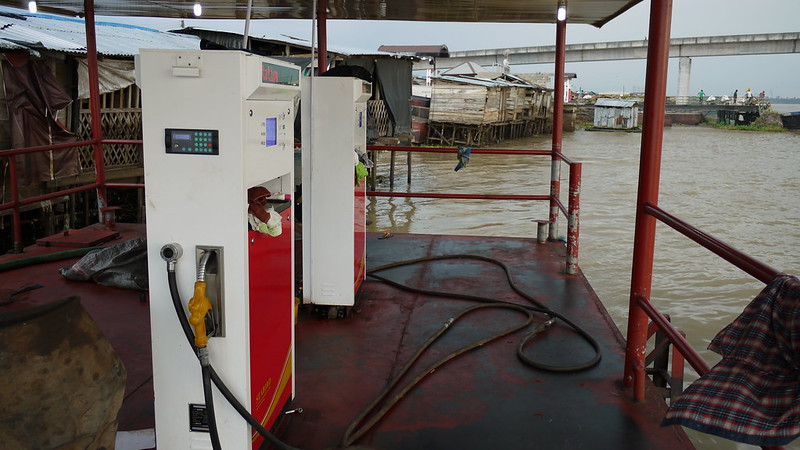1 February, 2022Just as it appeared that the federal government of Nigeria and the unions, with their civil society allies, were heading for a collision course on the announced fuel price increase, the government backtracked on the eve of national protests.
IndustriALL Global Union affiliates in Nigeria are vowing to fight petrol price increases which they say will erode the incomes of their members and worsen poverty.
National Union of Petroleum and Natural Gas Workers (NUPENG) and the Petroleum and Natural Gas Senior Staff Association (PENGASSAN) are calling on the government to industrialize the economy by resuscitating local refineries. The unions say local refineries will assist in mitigating the effects of fluctuating oil prices, create decent jobs, and increase the country’s revenue.
The government had earlier announced the petrol price increase from 320-340 Naira per litre (5 cents in US dollars). However, it made another announcement on 24 January that it was reversing the decision on the back of planned national protests organized by unions and civil society organizations.
“The suspension of the petrol price increase is not a total victory because it does not change the social and economic conditions of the Nigerian workers. There is high unemployment and inflation is increasing. Workers need a social cushion that includes affordable public transport and infrastructural development,”
says Olawale Afolabi, NUPENG general secretary.
“Going forward, we will continue to engage with the government on the very critical issues of ensuring local refining of petroleum, creation of sustainable jobs and provision of petrol at an affordable price,”
says Ayuba Wabba, general secretary of the Nigeria Labour Congress.
The Trade Union Congress of Nigeria (TUC) concurs on the “revitalization of existing refineries, establishment of new ones including modular refineries, and effective policing of the borders to stem the rate of petroleum products smuggling.”
For several years unions have campaigned against the “resources curse” in Nigeria, where oil and gas reserves have not assisted the economy and ended poverty.
Paule France Ndessomin, IndustriALL regional secretary for Sub Saharan Africa says:
“Workers and communities in Nigeria expect the government to provide affordable petrol and not to be burdened with increases that often are a result of corruption. Nigerian workers should enjoy the benefits that come from the country’s vast quantities of oil and gas reserves, and this includes being able to buy affordable petrol that is refined locally.”
Photo: Floating petrol and diesel filling station in the Niger Delta, Stakeholder Democracy
